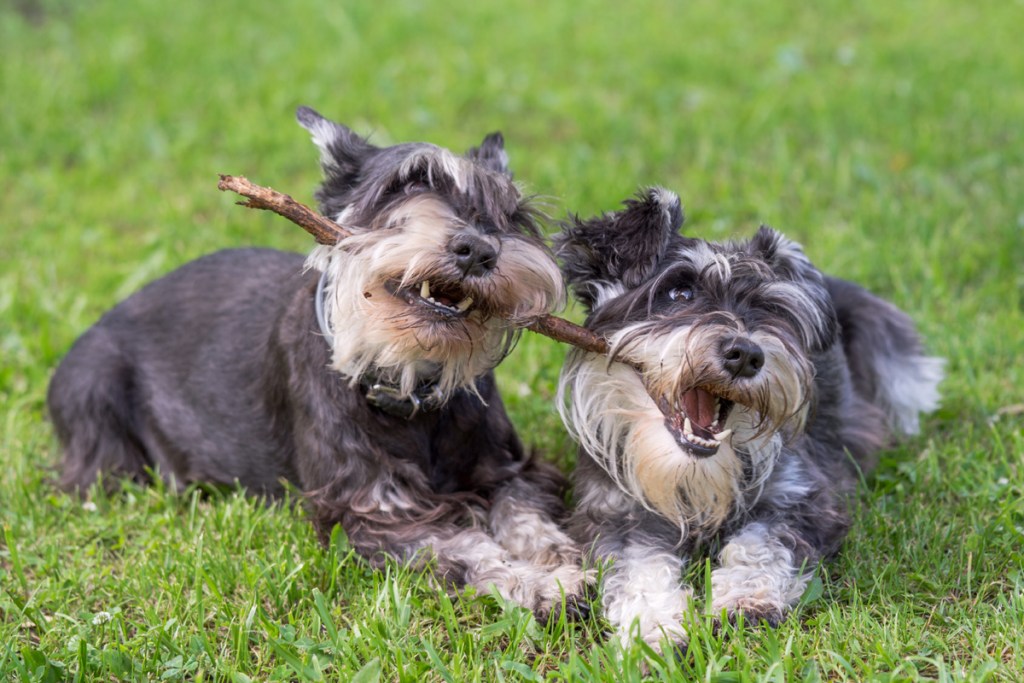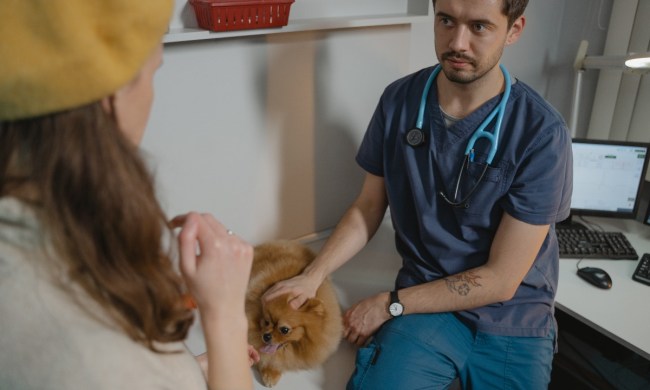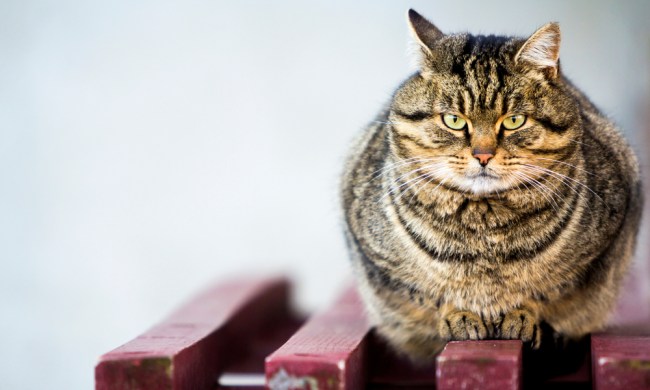Miniature schnauzers may be the smallest of the schnauzer breed, but they are dogs with big personalities. Naturally curious, this dog breed is easily recognizable with their bushy beards and eyebrows. They are intelligent, playful, loyal dogs who love being the center of attention. According to the American Kennel Club, while this breed is generally healthy, they are prone to a few diseases. Following are five health problems to look out for in miniature schnauzers.

Cataracts
Miniature schnauzers are prone to cataracts in addition to other serious eye conditions such as cherry eye, glaucoma, and eye ulcers. According to veterinary experts, while cataracts are more common in senior dogs, they can be triggered by inadequate nutrition, an infection, diabetes, or an injury. Cataracts are cloudy areas within the lens of the eye. They usually appear white or gray and can occur in one or both eyes. A cataract can remain in just one tiny area of the lens or affect the entire lens, leading to partial or complete blindness.
Symptoms
- Changes in eye color or in pupil size
- Cloudy pupils in one or both eyes
- Difficulty seeing in dimly lit areas
- Reluctance to climb or jump
- Rubbing or scratching of the eyes
- Bumping into furniture
- Misjudging distances
- Watery eyes
If your pet shows any signs of cataracts, contact a veterinary ophthalmologist. You have several options for treatment, including surgery to remove the cataracts.
Hyperlipidemia
According to the VCA Hospital group, “hyperlipidemia” refers to elevated levels of lipids or fats in the bloodstream. The term is typically used to describe high levels of triglycerides or cholesterol. While it’s normal for dogs to have a surge of fats into the bloodstream after eating, veterinary experts say those fats should be cleared in six to 10 hours. In animals with hyperlipidemia, the fat levels remain high all the time. If left untreated, it can lead to pancreatitis, liver disease, eye disease, and seizures.
Symptoms
In most cases, hyperlipidemia has no clinical signs, according to medical experts. The condition is often detected only when a veterinarian performs routine screening blood work. If symptoms do occur, they might include:
- Vomiting
- Diarrhea
- Decreased appetite
- White patches on the surface of the eye
- Skin abnormalities such as itching or hair loss
Once hyperlipidemia is detected, your veterinarian will treat the underlying cause. If no underlying cause is found, your schnauzer will be put on a low-fat, high-fiber diet.
Pancreatitis
Miniature schnauzers are predisposed to pancreatitis due to their tendency to have high blood triglyceride levels, according to experts at PetMD. The pancreas is responsible for releasing enzymes that aid in digestion. When working normally, the enzymes become active only when they reach the small intestine. However, in a dog with pancreatitis, the enzymes activate when they are released, causing inflammation and damage to the pancreas and surrounding tissues and organs.
Symptoms
- Hunched back
- Repeated vomiting
- Pain in the abdomen (dog appears uncomfortable or bloated)
- Diarrhea
- Loss of appetite
- Dehydration
- Weakness/lethargy
- Fever
Treatment is primarily supportive care regardless of whether the patient has acute or chronic pancreatitis, according to PetMD. Veterinarians can help manage the pain associated with this condition.
Liver shunts
This breed is more likely than other dogs to suffer from a liver shunt, called a portosystemic shunt. With this condition, some of the blood supply that should go into the liver goes around it instead, depriving the liver of the blood flow it needs to grow and function properly. According to veterinary experts, dogs can either be born with these shunts (congenital shunts) or develop them later in life (acquired shunts).
Symptoms
- Poor growth (congenital shunts)
- Poor appetite and/or eating unusual things
- Weight loss
- Increased thirst and urination
- Difficulty urinating or blood in the urine
- Vomiting, which may contain blood
- Diarrhea, which may contain blood
- Behavioral changes like staring vacantly, poor vision, unsteadiness, and circling
Treatment for liver shunts can include surgery to close the shunts or medications and diet to help manage the symptoms.
Bladder stones
While bladder stones are common in all dogs, miniature schnauzers are 10 to 20 times more likely to develop calcium oxalate stones than other breeds, according to the Morris Animal Foundation. This type of urinary stone can cause life-threatening obstruction of the urinary tract.
Symptoms
- Straining or discomfort when urinating
- Blood in the urine
- Strong smell from urine
- Frequent urination
- Having accidents in the house
- Licking their genital area more than usual
- Having lower energy
According to the VCA Hospital group, there are three main treatment options for bladder stones: surgery to remove the stones, a nonsurgical procedure using urohydropropulsion to flush out small stones, and feeding a special diet formulated to dissolve the particular type of bladder stone.

It’s important to remember that just because miniature schnauzers are predisposed to certain diseases doesn’t mean that your dog will contract them. However, by being aware of the breed’s health risks, pet parents can be alert for symptoms. Nobody wants their dog to suffer, and seeking early veterinary intervention can help pets avoid increased pain and discomfort and prevent further complications.



